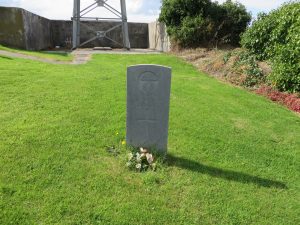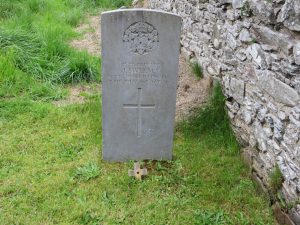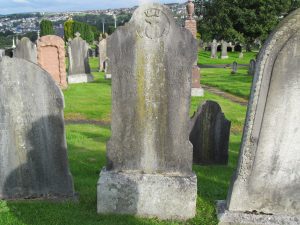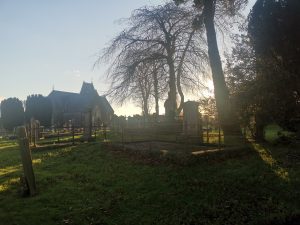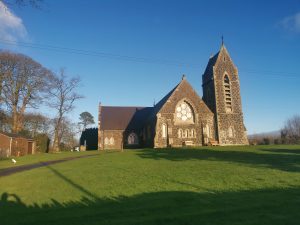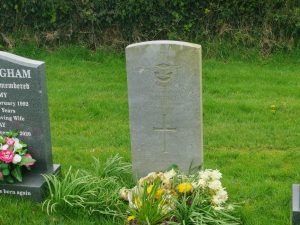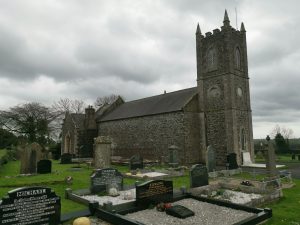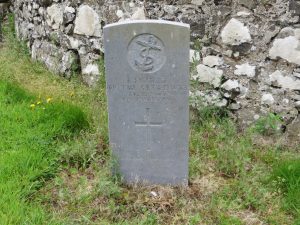Bacon, W J (William James)
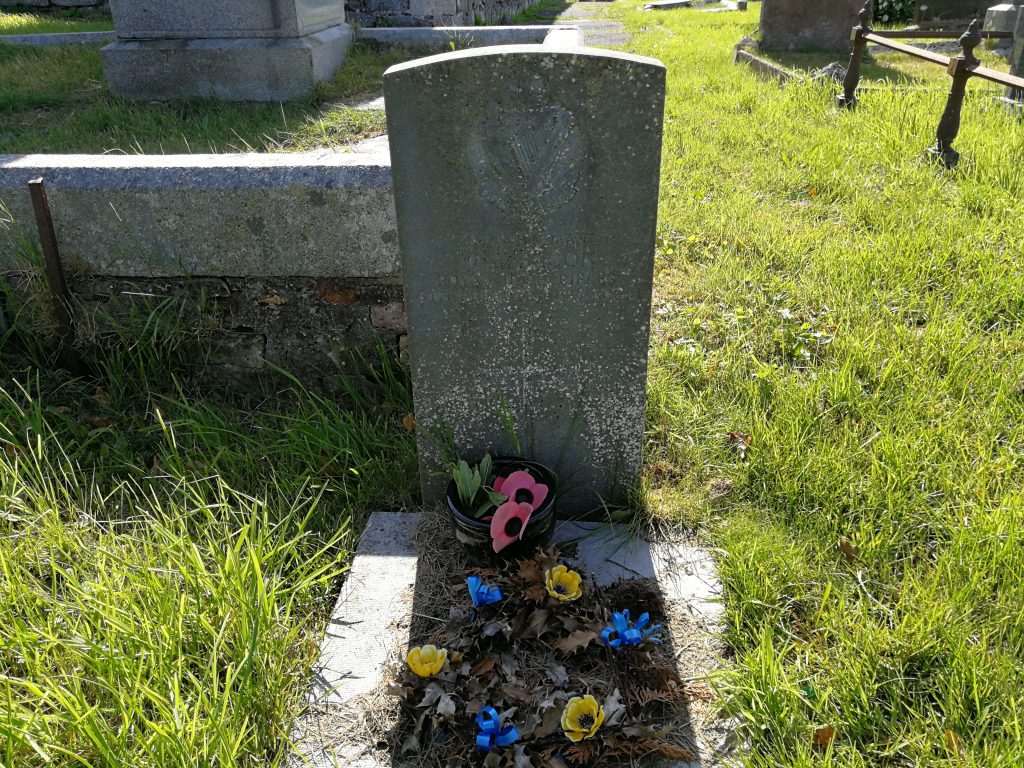
Bacon, W J (William James)
Rifleman William Bacon was the father of Samuel and Jack Bacon, husband of Catherine Bacon, of 9, Bazaar St., Portrush, Co. Antrim. He served with the 12th Battalion of the Royal Irish Rifles and was in training in Newtownards.
William died of pneumonia in the Military Hospital, Newtownards, he was the first soldier from the camp and the 12th Battalion to die in the war. For this reason, the funeral was treated with great importance.
A large procession of soldiers met the body and casket, draping it with a Union Jack before leaving the hospital and taking turns carrying William’s remains along the Belfast roads. Lieutenant-Colonel McCalmont[1] acted as escort to the procession and provided a motorised hearse to take the soldiers remains to his hometown of Portrush.
On arriving in the small coastal town of Portrush the hearse was met by local members of the U.V.F.[2] of which William had been a member before volunteering for active service. A procession then continued through the town to Ballywillan Cemetery, were a party of soldiers led by Captain C.S. Murray[3] and Lieutenant R.A. Cramsie[4] and a large crowd of local people met them.
A firing party was at Williams final resting place led by
Serjeant William Harvey.[5] They fired a volley of shots as the “Last Post” was played and his body lowered into the ground.
Many of the men who attended Rifleman William Bacon’s funeral would themselves die by the end of the war. William was the first, but not the last.
Date of Death: 06/02/1915 (Aged 41)
Service: Rifleman, 12th Bn. Royal Irish Rifles
Service Number: 24
Burial Location: Ballywillan Cemetery, D.8 (North-East of Church).
[1] Lieutenant-Colonel Robert Chaine Alexander McCalmont was with the 12th Battalion from the 15/09/1914 to 01/11/1915.
[2] The U.V.F. were the Ulster Volunteer Force. A Protestant Militia, based in Ireland, formed in 1912.
[3] Captain Charles Stevenson Murray died of wounds on the 2nd of July 1916 which he received during the “Great Assault” on the 1st at the Somme.
[4] Lieutenant Robert Alexander Cramsie, would survive the war and later be promoted to Captain.
[5] Serjeant William Harvey would survive the war. He was awarded the Military Medal for bravery, but struggled throughout with alcohol, having been court martialed three times for drunkenness while on duty.
